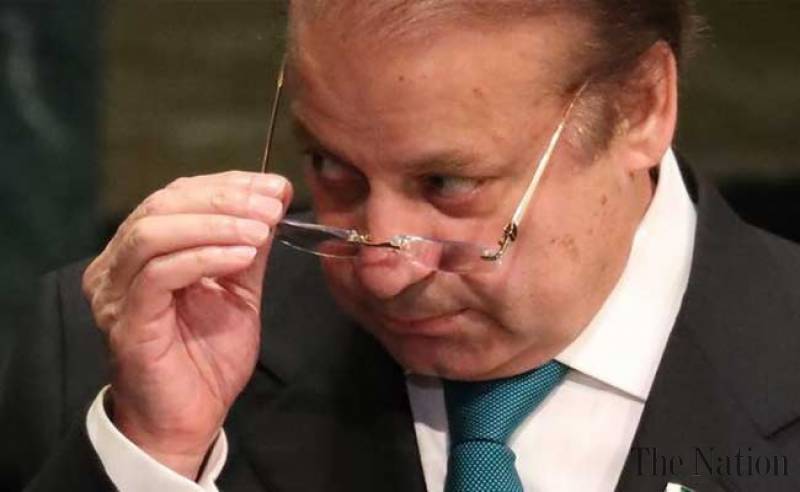The question of democracy in Pakistan is far from settled despite the commitment of the founding fathers and political leaders of following generations. Dissolution of the first Constituent Assembly of the country in 1954 after a bureaucratic coup heralded a 6/10 years cycle of intervention by dictatorial forces for ambushing the democratic process. But it is also true that people of the country have refused to put up with despotic rule. They have always risen for the restoration of democracy and have rendered valiant sacrifices in the struggle against dictatorship. Half of the country was lost in 1971 when Bengali people resisted against their vertical and horizontal oppression and exploitation by the Punjabi dominated ruling elite and the conflict reached a breaking point after large-scale bloodshed.
Unfortunately no lessons were learnt from that debacle. The survival of the 1973 Constitution has been precarious, as the security establishment has consistently refused to accept the idea of a genuine republic envisaged by the Constitution. The Generals have constantly sought to rule the country either by imposing naked martial laws or have controlled the state system under a democratic facade.
Zia’s martial law was a turning point on three counts. One, by executing Prime Minister Zulfiqar Ali Bhutto the generals made it clear that they can go to any extent in removing hurdles from their path to dominate and control the state system. They were of course in for a rude shock to see that even their brutal oppression couldn’t stop the emergence of the Movement for the Restoration of Democracy (MRD) in the subsequent years.
Two, as part of the grand western strategy for defeating Soviets in Afghanistan Pakistani generals launched a Jihadist project that acquired its own dynamics over the years. Internally religious extremism was adopted as nation building strategy and extremist religious ideologies were promoted under state patronage. Moreover, apart from defending physical frontiers of the country the security establishment also appointed itself as defender of the “ ideological frontiers”. Now this was a political project that negatively impacted the character and image of vital state security institutions. The situation has become more complicated in this regard after 9/11.
Three, the national security institutions by building a business empire developed a corporate business interest. Like interests of every segment of corporate sector the aforementioned business interests also necessitate intervention in governance. It goes without saying that political elites have been constantly indulging in these practices. But the difference is that these factions of political elites have been facing exposures from time to time and some times even prosecutions but discussion on the business interests of security establishment is generally regarded to be a taboo subject.
The tidings of autumn are important because apparently the cycle of democratic transition in Pakistan is facing impediments that have the potential for derailing it. There are several indications. Imran Khan who doesn’t hide his intention of overthrowing the present government is fiercely attacking all state institutions, except the armed forces, to bring their legitimacy under question. This is the classic and well-known method for preparing ground for a putsch. The “breach of national security” allegedly caused by a press report published recently in an English language national daily is more of a build up of pressure to the November campaign against the government than a serious issue as there was nothing new in the content of the aforementioned report. It is the repetition of the so-called memo gate, which was aimed at weakening the elected government of that time in the aftermath of the OBL related incidents. Last but not the least is the emergence of the most dangerous player in shaping the tidings of November. The so called Defense of Pakistan (DPC) has decided to come out to the streets in Islamabad in last days of October to register their protest against some initial steps taken recently by the government for implementing National Action Plan (NAP). This is the real reason behind Imran Khan’s decision to change the date for his siege of Islamabad from October 30 to November 2. This reveals the remarkable coordination. The organised and tough cadres of the known extremist and militant organisations will first enter the arena to jolt the government before the final assault of Imran Khan and his followers. It is obviously not homework for a democratic transition. What will be the impact on the international image of the country when the known extremists will besiege the Capital? But the ruling elites of Pakistan are not well known for thinking things through.
Unfortunately Nawaz Sharif government has its own problems. It has demonstrated a special penchant for bringing in draconian laws. As if heaping up of harsh anti-terror laws was not enough it has brought in a black law in the name of controlling cyber crime. There are serious concerns about its implementation. News has appeared recently about delegation of powers to the premier intelligence agency of the country for investigation and taking action under PECA. Interestingly this is not the case even in the most draconian anti terror laws. How can the executive branch oust the role of judiciary in overseeing investigations and processes leading to adjudication? Similarly scores of journalists, political activists and people from different strata received mysterious phone calls that wanted to “confirm” phone numbers of those persons who had recently spoken to journalists from daily Dawn. Seems to be a harbinger of things to come.
Be that as it may the question is that will Prime Minister Nawaz Sharif take the parliament and people of Pakistan into confidence about the tidings of November so that a way out is found or will he let them face a fiat accompli?
The organised and tough cadres of the known extremist and militant organisations will first enter the arena to jolt the government before the final assault of Imran Khan and his followers.






